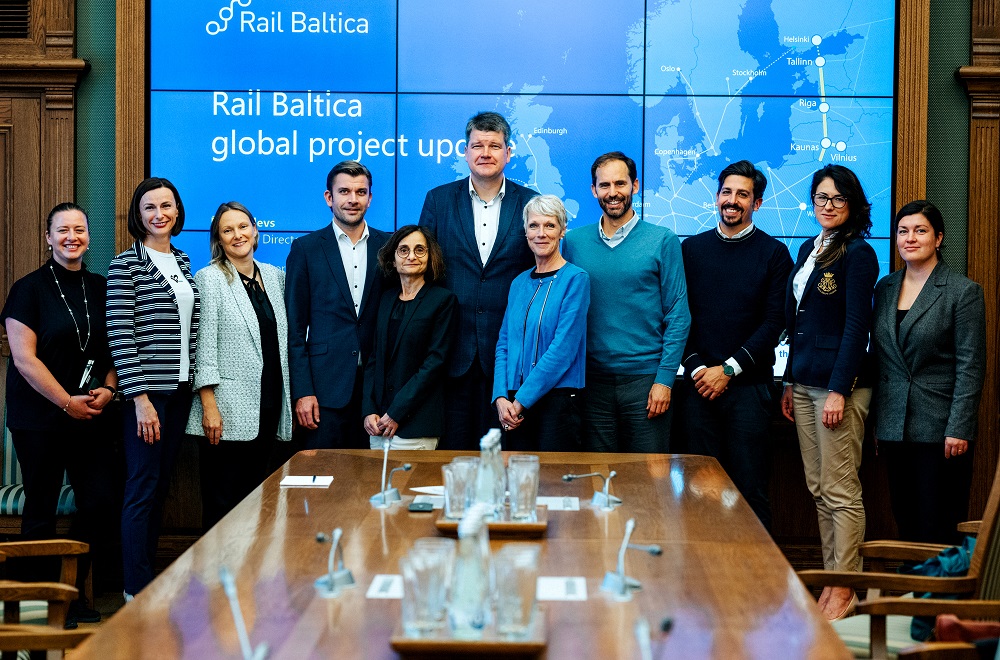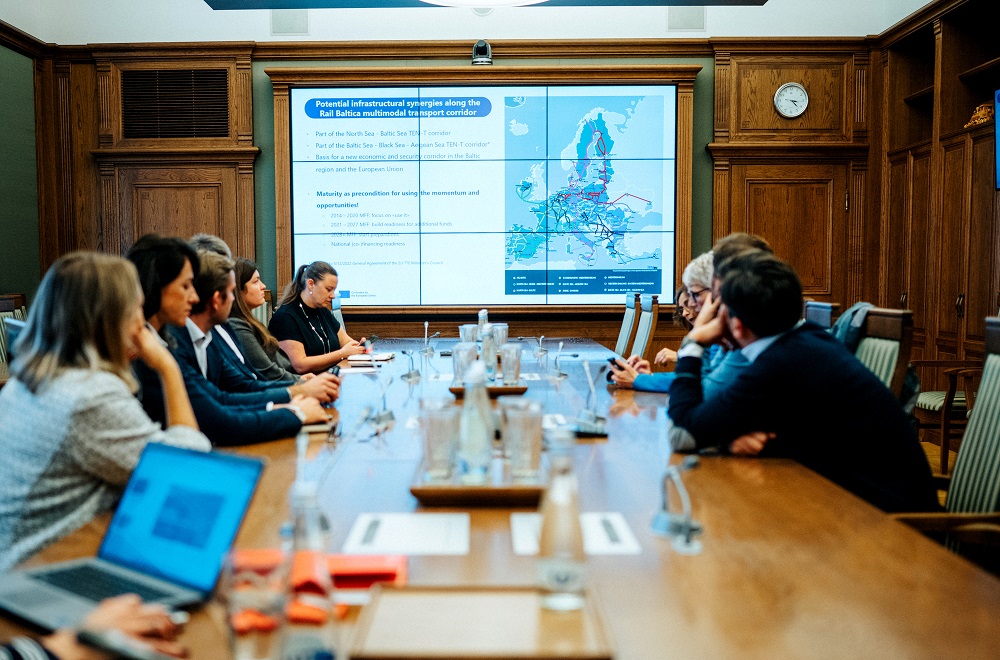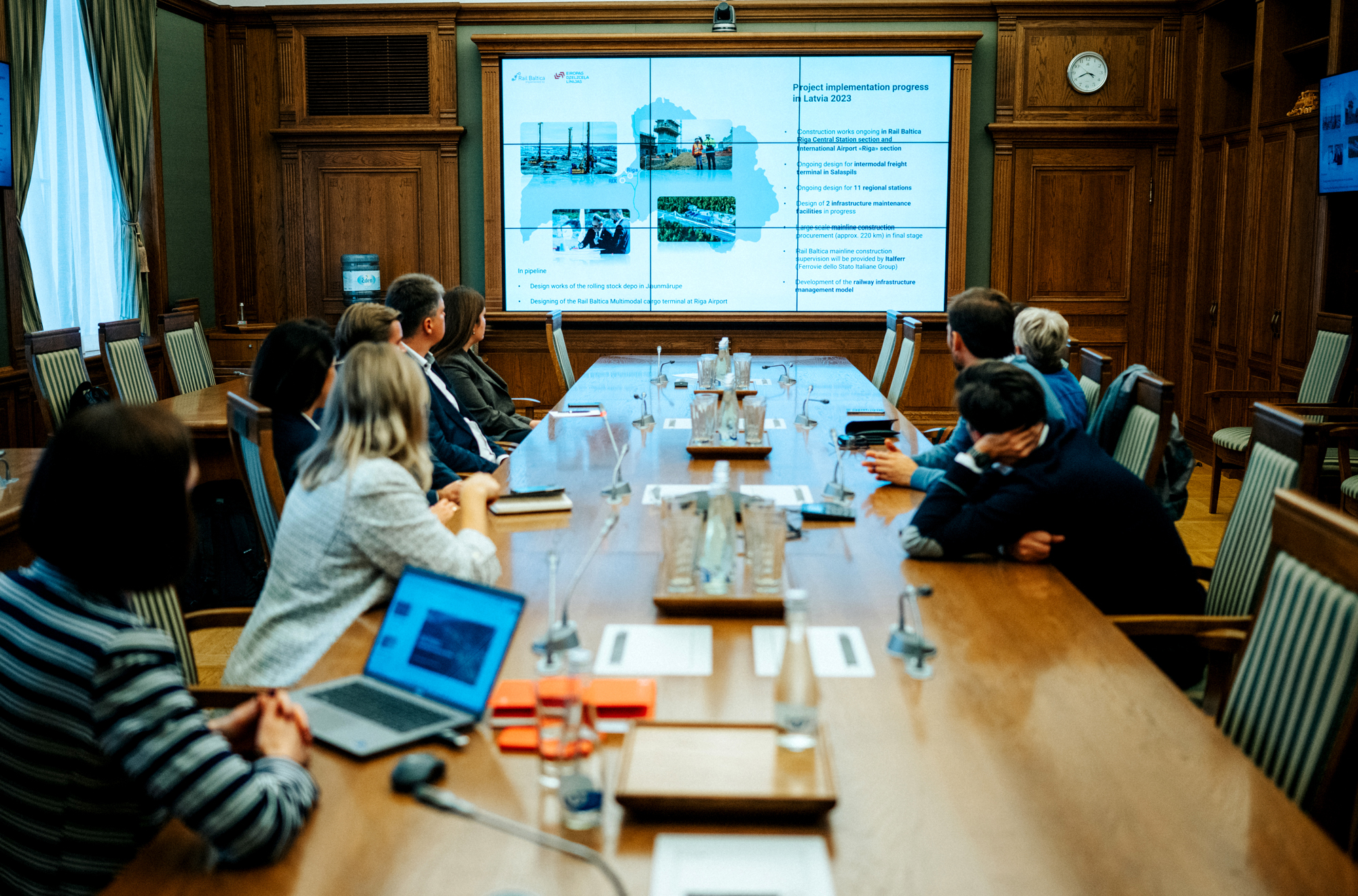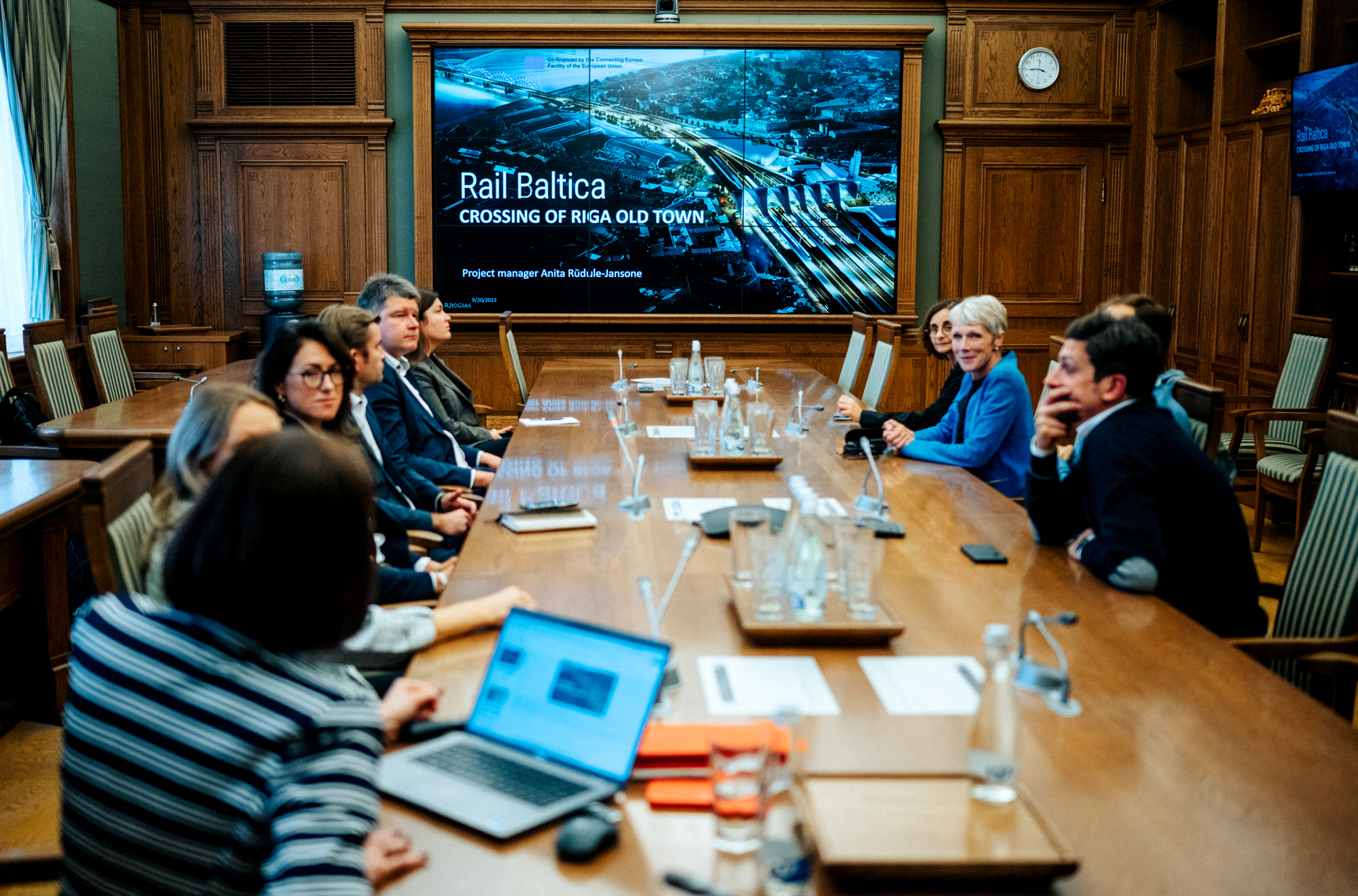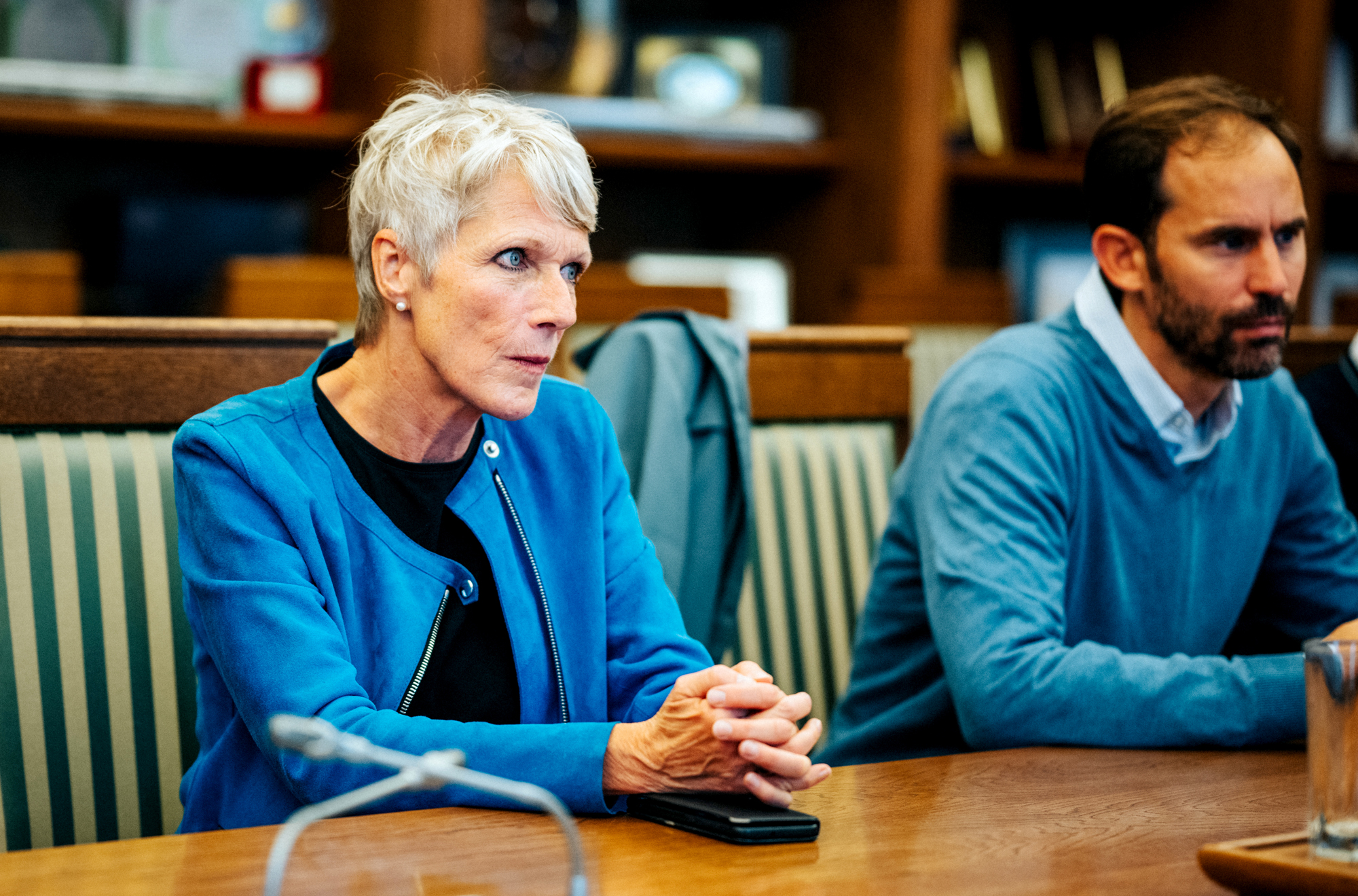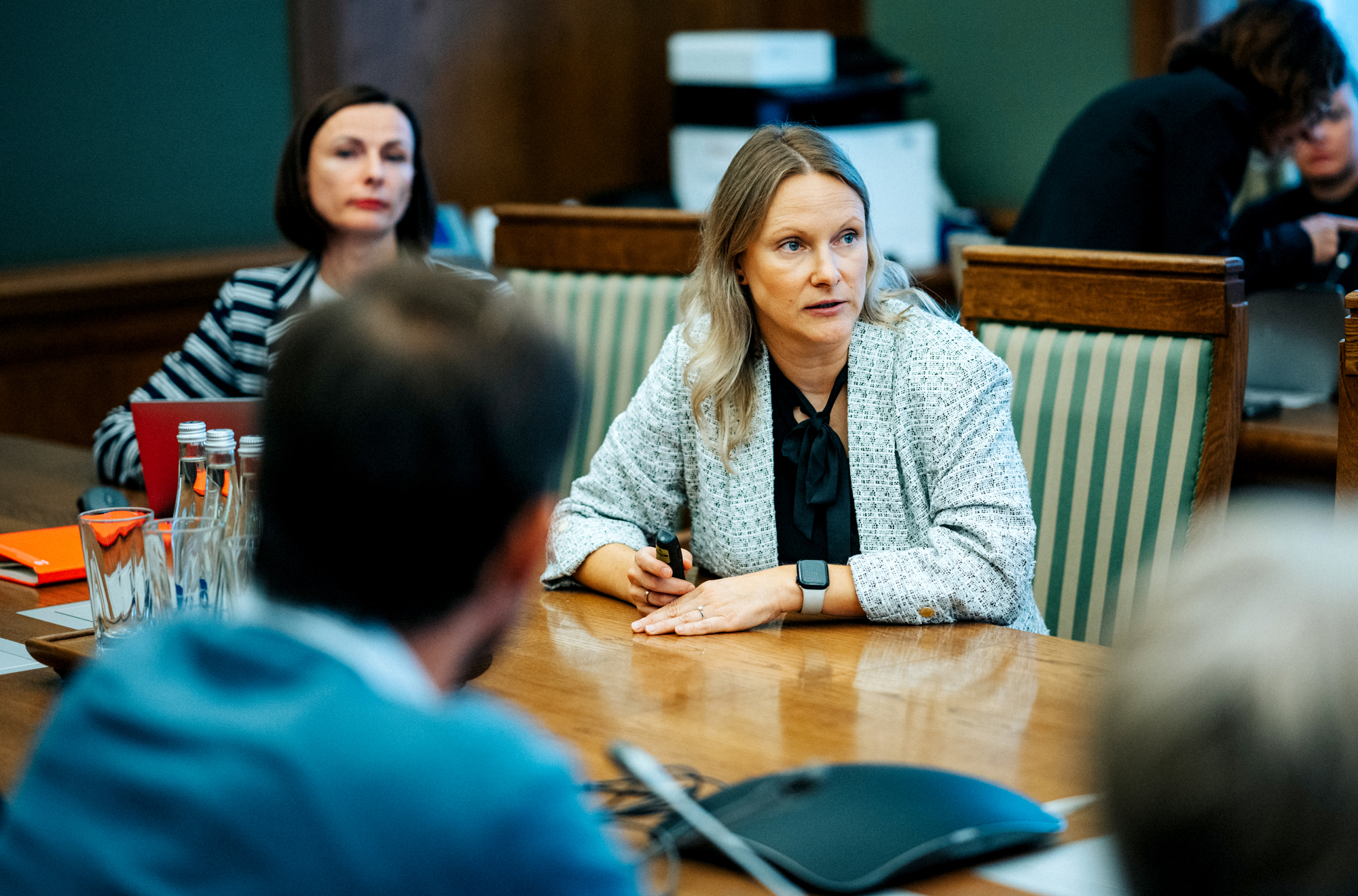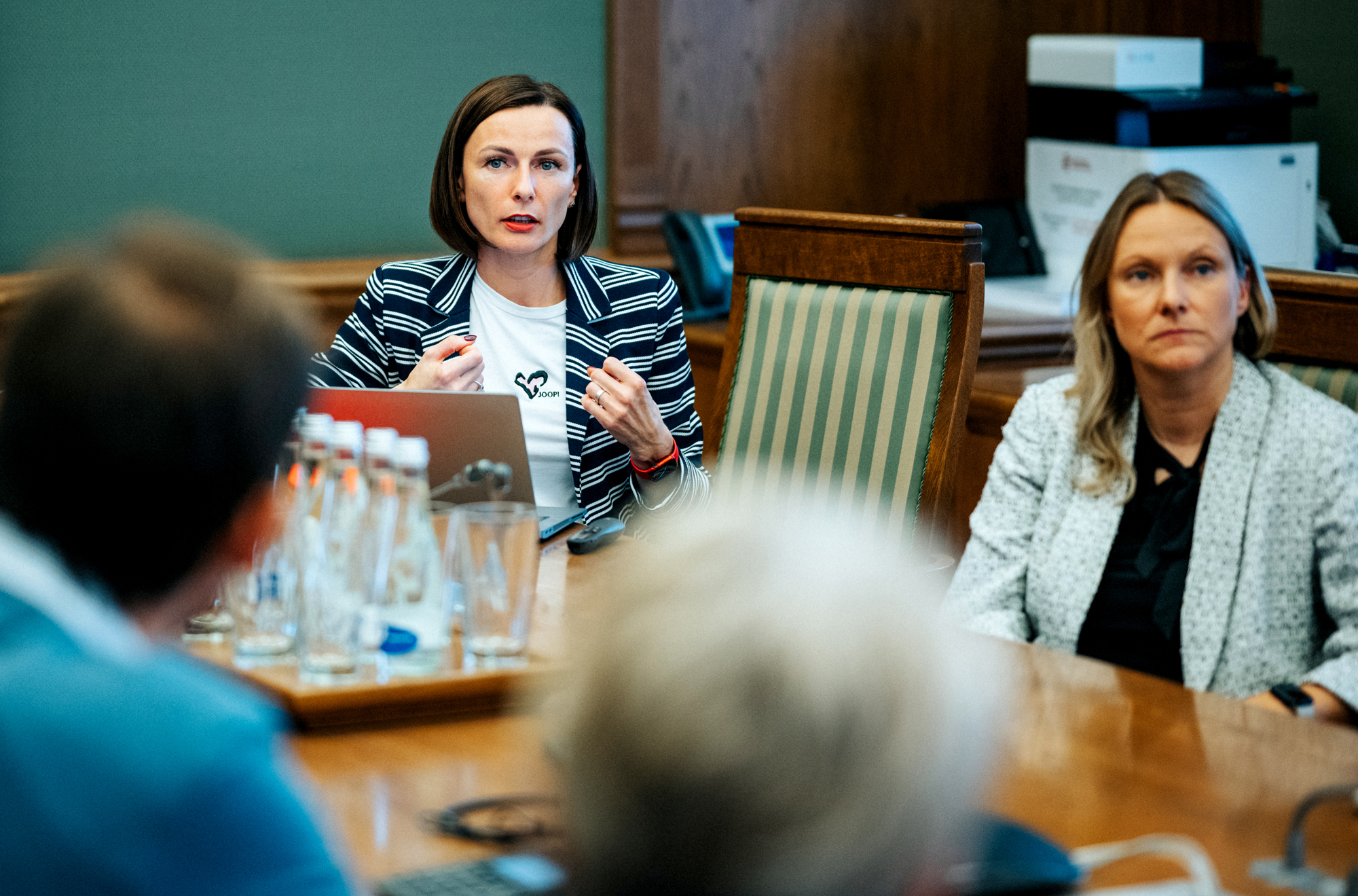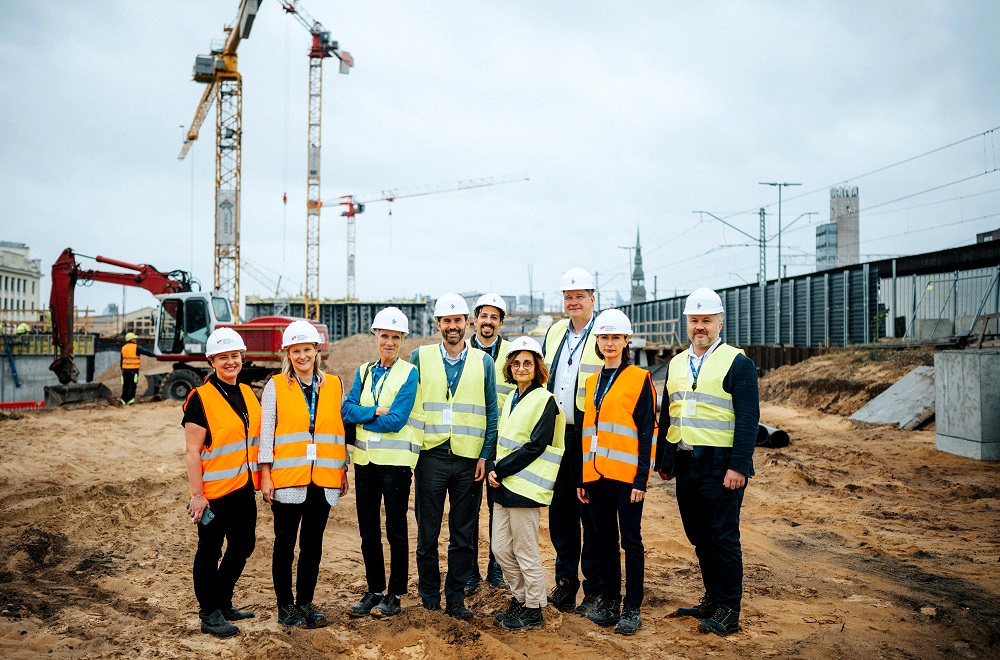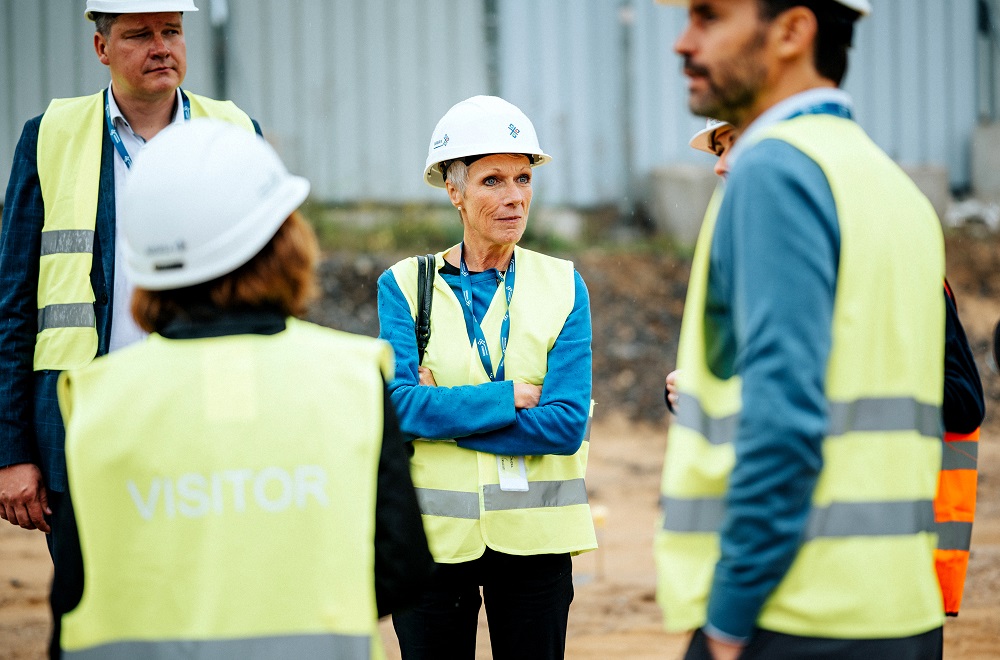On September 20, representatives from the International Union of Railways (UIC) gathered for a meeting with key stakeholders and experts from Rail Baltica global project delivery organizations RB Rail AS and the national implementing body “Eiropas Dzelzceļa līnijas.”
The primary agenda of this meeting was to initiate discussions concerning the current progress and prospects of the Rail Baltica project, including the context of the revision of Europe’s Trans-European Transport Network corridors, specifically the North Sea – Baltic Sea and Baltic Sea – Black Sea – Aegean Sea corridors. The Rail Baltica project is envisioned not only as a vital transportation link but also as a foundation for a new economic and security corridor in the Baltic region and the European Union.
“Cooperation with UIC has played a significant role and has been beneficial for several aspects of Rail Baltica’s development and implementation as a cross-border project both through involving technical expertise and knowledge sharing, ensuring that the project adheres to international railway standards and best practices. The clear evidence of that is Rail Baltica design guidelines serving core documentation of Rail Baltica’s implementation and having permanent reference to UIC work results achieved. That allows to ensure the Rail Baltica railway interoperability across all three Baltic states as well ensuring that the cross-border cooperation brings together experts and stakeholders from different regions to address shared challenges,” said Eriks Diļevs, RB Rail AS Technical Director.
“Speaking of different track gauges in different countries, including Latvia, I would like to emphasize the Rail Baltica project, which will connect the Baltics with the rest of Europe through the European gauge railway infrastructure. Rail Baltica will also be an important corridor for freeing up the mobility of passengers and freight. Railways are equally important for a country’s sustainability: we see the example of Ukraine, where railways play a huge role when the country is in such a difficult situation – this is also an item on the UIC agenda,” said Sandra Gehenot, UIC Europe Regional Coordinator.
Rail Baltica team was proud to showcase the progress in Latvia and welcome representatives of UIC for a site visit in Rail Baltica Riga Central Hub construction site. “When finished the Hub will be one of the most important multimodal hubs in the region and now it is rapidly taking shape as the installation of roof arches has begun. Strategic importance of Rail Baltica is growing as there is revision of Europe’s TEN-T corridors including pathway to Ukraine and Moldova and we look forward to future cooperation with UIC in developing coherence of the rail system and promoting multimodal integration,” said Marika Zadraka, Eiropas Dzelzceļa līnijas International Relations and Stakeholders Manager.
The UIC is an international organization that coordinates cooperation amongst railways at a worldwide level, promoting harmonized operation of railway systems. The organization has 194 members from all over the world. The UIC develops standards and fosters innovation in railway development, its main objectives include financing for infrastructure development, digitization of railways, and comfortable, connected mobility.

